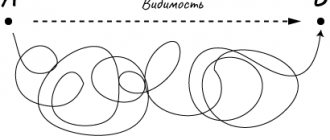An ax of the soul, a destructive poison for the heart, the most disgusting passion, the baseness of nature, the friend of empty souls, the sister of competition, the mother of iniquities... There are so many metaphors about this feeling in the works of ancient and modern philosophers and writers! Every person has experienced envy at least once. Only for some it is just a short-term emotion - a prick, the pain from which passes quickly, and the wound remains almost invisible. But for others, it becomes a real pathology, corroding the soul and requiring the intervention of psychologists, and sometimes psychotherapists.
What is envy
This is a fairly capacious concept, so you can find a huge number of definitions.
The simplest lexical meaning that explains its essence: envy is the desire to have what another has (according to Ushakov’s dictionary).
A more scientific and capacious definition: this is a socio-psychological complex of various forms of behavior, feelings and emotions that arises in relation to a person who is more successful in material and non-material terms.
Psychology views envy as a negative feeling caused by the achievements of another person, contributing to the development of an anxious state and, in most cases, having a destructive effect on the individual.
Feeling or emotion
Many people are interested in what envy essentially is - is it a feeling or an emotion? Psychology gives a clear and unambiguous answer to this question: at different moments it can be both.
When is it an emotion?
If envy arises spontaneously, unconsciously, as a reaction to a specific situation (object), it does not last long and passes without negative consequences for personal structures. It is difficult to control and hide. It can ruin your mood, but again, only for a short period of time. However, you need to keep in mind: the more often it appears, the more it risks developing into a negative and destructive feeling.
Example. Women experience such an emotion when they see beautiful shoes, a branded handbag or a ring with diamonds on a stranger. They may exclaim: “What a beauty! I want the same ones!” They think about it for some time, but at the same time without wishing harm to their owner and without torturing themselves with sleepless nights with obsessive thoughts.
When is this feeling?
If envy is recognized by a person, it is a long-term state and has a destructive effect on personal structures. It doesn’t go anywhere, but it can be hidden under a mask of indifference, since in society it is perceived as a purely negative and even humiliating trait. Society does not favor envious people. The feeling described cannot ruin your mood, because it poisons your whole life. If you do not fight it, it can become a pathology requiring the intervention of a psychologist or psychotherapeutic treatment.
Example. A woman envies a particular friend who can afford to change her shoes every week and has a whole collection of chic jewelry and branded handbags. Whereas she has none of this. At first, she experiences only negative emotions when she sees each new thing. But over time, they develop into an irresistible desire to have the same ones. This becomes an obsessive thought, turns into hatred of the owner of luxury, and leads to depression and insomnia.
Having once experienced an unpleasant pang of envy in your heart, you cannot allow a short-term emotion to develop into a strong and personality-destroying feeling.
Bad or good
For many, this question will seem too obvious. Of course it's a bad feeling! It ruins your mood, makes you wish harm on others, and prevents you from thinking productively and sleeping peacefully at night. The negative consequences can be listed endlessly. However, the psychology of envy also considers its positive impact on the individual. It lies in motivation.
A mentally healthy individual with adequate self-esteem, in whom the desire to have what someone else has has awakened, begins to ask the “right” questions:
- “Why does he have it and I don’t?”;
- “What did he do to have this?”;
- “Can I do the same?”;
- "What do I need to do for that?" etc.
The competitive spirit turns on, and motivation appears to do the same and even better. A similar situation is often observed among colleagues. One occupies a worthy position, and others have a natural but different reaction to this. Someone begins to be extremely jealous, gloating, spreading unpleasant rumors and arranging intrigues. This is bad because it poisons the lives of both the envious person and those around him. This spurs some people on, and they try to repeat his success: work better, don’t be late, prove themselves more. This is positive, as it promotes career and personal growth. It depends only on the person how he perceives his own desire to have what others have.
Start to envy the envious people yourself
This unusual method may seem paradoxical, but it works very well in practice.
People who envy us feel even worse from their own powerlessness and begin not only to rejoice at your successes, but to truly experience suffering from their feelings of inferiority. For such people, envy becomes a habit and they simply stop noticing their merits. But there is something good in every person. You just need to find it.
And if such a person cannot independently identify such qualities in himself, help him find them and “envy” him with all sincerity, in other words, express your admiration for the qualities that you discovered in him.
Reasons for the transition of emotion into pathology
To cope with envy, which becomes a destructive pathology, it is necessary to get to the bottom of its origins. Not a single feeling arises in a person just like that, out of nowhere. They are all grown on some soil. Therefore, the first step towards getting rid of a poisonous scourge is to find out the reasons. The following circumstances are most often the provoking factors.
Frustration
Inability to satisfy one’s own needs, discrepancy between desires and capabilities. In psychology, it is one of the strongest psychotraumas. Causes strong aggression against someone who does not have such a problem. The consequences are deprivation, neuroses and egodystonia. For example, one of my friends goes on vacation to the sea every year. The second, due to his financial condition, cannot afford it and begins to envy.
Need
It is a source of frustration, which subsequently develops into pathological envy. Lack of money, financial insolvency, low social status force a person to compare himself with others - the rich, the successful, those at the helm of power. As psychologists note, today the too obvious stratification of society, which is actively exaggerated by the media, is the cause of most psychological disorders.
Dissatisfaction with appearance
More than 75% of people have internal complexes due to their own appearance. Some are embarrassed by the shape of their nose, others hate their figure, and still others cannot look at themselves in the mirror at all. Reasons: congenital pathology (deformities, heredity) or acquired psychotrauma (contrived complexes due to suggestion by parents, peers, husband, etc.). Such people are capable of being very envious of those who fit social stereotypes of beauty.
Lack of personal achievements
Sometimes people, having wealth, family well-being, normal appearance, begin to feel emptiness within themselves. It seems that everything is there, but the potential remains unspent. It would be possible to make a more successful career, move to a larger city or abroad, send a child to sports, etc. Comparisons with former classmates, co-workers, neighbors, relatives begin - and envy arises.
Subjectivism
A person stews in his thoughts around the clock. Often, focusing on problems, he does not see the positive things happening in life. For example, if at work it is not possible to occupy a high position and earn more, all efforts are thrown into closing this gap. Even if everything is fine in the family, everyone is healthy, no one quarrels, the children are doing well in school or sports - all this fades into the background. There is no objective picture of life. Envy arises towards those who achieve career growth. Although, most likely, the latter also has his own difficulties, but in a different area - disagreements with his wife, illness of parents, misunderstanding with teenage children, etc.
Childhood psychotrauma, peculiarities of upbringing
The most common cause of envy. It completely takes over a person if, in childhood, parents:
- they praised him only when he achieved a certain success (if he finished a quarter with honors, won a competition, etc.);
- punished for the slightest offense by saying offensive words and using physical violence;
- forced to constantly limit oneself in desires;
- convinced that wealth and power are always bad;
- invaded personal space, controlled every step;
- They argued that you always have to pay for happiness with tears and pain;
- supported pessimistic sentiments.
As a result of such upbringing, there is no ability to sincerely enjoy life, deep internal complexes and a distorted value system are formed. While others, believing in success, make a career, create a prosperous family, and realize their potential. It goes without saying that jealousy of others’ achievements and envy arises.
If the cause of envy is psychological trauma, you will have to get rid of it with the help of a psychotherapist - perhaps even through hypnosis. It allows you to identify gaps in the upbringing and attitude of parents and correct distorted attitudes. If the problem is low self-esteem and internal complexes, a psychologist will help you cope with them. All other points can be eliminated yourself.
This is interesting! In 2009, Japanese scientists from the National Institute of Radiology (Honshu Island) conducted a series of studies under the leadership of Hidehiko Takahashi, MD and PhD. As a result, they said they had found the area of the brain responsible for envy and schadenfreude. This is the anterior part of the cingulate cortex. It is noteworthy that it plays a major role in the occurrence of pain syndromes.
To avoid losing your favorite job, try:
treat colleagues kindly, take an interest in their successes, and give sincere compliments.
But don’t let their problems come to your heart, don’t gossip, “judge not, lest ye be judged” should be a dogma in your attitude towards employees. Don’t evaluate your colleagues, remain neutral, don’t take part in other people’s conflicts, try not to stand out from others, don’t boast about your education, don’t give reasons to discuss your appearance. Dress according to the dress code for the office. Leave jewelry and revealing outfits for parties, don’t break away from the team, attend corporate parties, don’t refuse treats on birthdays, don’t talk about your personal life, the less information about you, the better for you. Following these simple rules will help you avoid conflicts at work, will protect you from gossip and envy.
Signs
Why know the signs of envy?
Firstly, they will allow you to control your own behavior. If you observe 3 or 4 manifestations from the list proposed by psychologists, you need to think about it and begin to take urgent measures. Secondly, with their help it is easy to recognize an envious person in your environment. Remember that this is a feeling that destroys not only from within, but also harms those to whom it is directed. You need to distance yourself from such people, stay away and avoid close contact with them.
Kinesics (the science of postures, gestures and facial expressions) tells in detail how an envious person reveals himself:
- a strained smile that has nothing to do with the hatred (hostility) that lurks in the soul;
- lack of joyful sparkle in the eyes;
- a frozen mask on the face instead of lively and sincere facial expressions;
- tilting the head to the side, allowing you not to look into the eyes of your interlocutor;
- squinting of the eyes even with good vision;
- hands near the mouth, as if covering it so as not to say too much;
- closed pose (legs crossed, hands hidden behind the back or in pockets);
- tilting the body in the direction opposite to the interlocutor - moving away from him;
- stiffness and restraint of movements.
In terms of behavior, actions and interpersonal communication, envious people often:
- build intrigues against those they envy;
- spread false, defamatory rumors about them;
- they deliberately get close to them, posing as girlfriends and friends in order to find out the details of their personal lives and use them against the object of envy;
- they never open up and share their problems;
- in the event of open confrontation, they step aside because they know their own inadequacy;
- prone to suicide.
Psychotherapists name ten mental disorders of personality and behavior that most often affect an envious person:
- neurosis;
- obsessive-compulsive disorder;
- mood disorders (affective pathologies);
- behavioral syndromes;
- emotional disorders;
- infantilism;
- passive aggression;
- neuropathy;
- hysteria;
- anancastic personality disorder.
If any of these diagnoses are present, psychiatric help is required. However, the pathology can not be brought to such an advanced form if you know what symptoms are harbingers of such disorders:
- constant irritability, nervousness, causeless aggression;
- secrecy, withdrawal;
- insincerity, deceit;
- sudden change of mood;
- depression;
- indifference, apathy, lack of initiative;
- chronic fatigue syndrome, etc.
Knowing how to recognize true envy, you can fight its internal development and prevent it from developing into pathology. Seeing how it manifests itself in others, you can protect yourself from the negativity coming from them.
They imitate you
An envious person alternatively wants to be better than you, and also to be like you. They may imitate the way you speak or the way you dress to feel more confident. Instead of letting it get you down, try to encourage them to go their own way. When they do their thing, give them positive reinforcement. Show them that they don't have to be you to become a person.
What kind of envy is there?
In psychology, the following types are distinguished.
Depending on the feelings it evokes:
- white - motivating, not hostile, when you do not wish the other person harm, but simply want to achieve what he has;
- black - destructive, aggressive, when the desire for evil burns from within the one who is envied, capable of harming others.
Many psychologists believe that white envy cannot be called a good and positive feeling. Yes, it does not lead to such sad consequences as black. Sometimes it even forces a person to achieve what he wants, motivating and setting him up for the best. However, it still causes pain, can lower self-esteem, worsens mood, and can cause depression. Silently experiencing negative emotions within oneself, when they do not find a way out, can lead to serious personality and behavioral disorders.
Some psychologists correlate white envy with a short-term emotion, and black envy with a long-term and all-destructive feeling.
Depending on the duration, psychology distinguishes:
- short-term (situational) envy-emotion;
- long-term (pathological) envy-feeling.
Depending on the form of manifestation, the English philosopher of the 17th century F. Bacon developed such concepts as:
- public envy, which motivates political decisions and changes in society and is openly announced;
- private (private) - the personal property of one person, most often hidden.
Depending on the destructive power:
- within the norm - everyone at some point desires what others have, this is envy, which every person has experienced at least once (it is most similar to an emotion, but manifests itself much less frequently);
- borderline - short-term, but often occurring, especially in relation to a specific object or a specific person (something between an emotion and a feeling);
- pathological - almost permanent, negatively affecting health, transforming personal attitudes, changing behavior and requiring psychotherapeutic treatment.
The German philosopher and sociologist Max Scheler identified impotent (existential) envy as a separate group. He considered it one of the most severe forms. It is aimed at a specific but unfamiliar person with whom personal contact has never been established. Most often, its targets are public, famous people who have a striking appearance and have achieved a position in society. It could end badly for both sides. For an envious person - a pathological personality disorder. For someone who is envied - through intrigue, rumors, public scandals and even physical violence.
Men's and women's
The gender characteristics of envy should be discussed separately.
In men
Has a competitive, but quite deep character. This is inherent in them by nature: on a subconscious level, they strive to be the first in everything and defeat their rivals. Accordingly, desire becomes an excellent motivation for achieving your goals. But this happens only in mentally normal people. If envy is superimposed on existing mental disorders (even the mildest), internal complexes or childhood psychotraumas, serious problems arise - destructive personality disorders and inappropriate behavior towards the object of envy. Moreover, men usually resolve contradictions with the help of physical force and manipulation.
Among women
Often an emotion, as in small children. But this is only if a stranger is at gunpoint. If this concerns someone close to you, it turns into a deep and destructive feeling. Intrigues, rumors, scandals - these are the weapons that an envious woman uses in such cases. That’s why women’s groups are often called serpentariums—where each one tries to “bite” a more successful colleague more painfully, discrediting her in the eyes of others.
This is also related to the statement that friendship between representatives of the fair sex does not exist, since it is usually destroyed by the envy of a friend: “She is more beautiful than me,” “Her husband is caring,” “The boss treats her better,” etc. In fact It's actually not that bad. Having thrown out negative emotions, women usually calm down and make peace with each other.
There is no single classification of envy either in psychology or psychotherapy. In order to create it, additional research is needed.
When envious people rejoice in your defeats
When something doesn’t work out for you and doesn’t work out the way you wanted, your envious people begin to experience real joy from it. These people carefully hide these emotions of theirs, but in their hearts they are very satisfied with your position.
You need to learn to be calm about your mistakes. And you can always answer your envious people that we all learn from our mistakes. It is important not to show your frustration in any way so that people who are jealous of you cannot enjoy your defeats.
Consequences
It is useful for everyone to know what pathological envy leads to in order to realize all the harm that it has on literally all areas of life.
Effect on physical health:
- The pressure constantly rises - hypertension develops;
- hyperhidrosis;
- tachycardia, arrhythmia, cardiovascular diseases;
- dyspnea;
- problems in the nervous system;
- muscle tension is formed;
- the functioning of the digestive tract is disrupted, which can lead to the development of gastritis and the formation of ulcers;
- pathologically low pain threshold (due precisely to the fact that the same part of the brain is responsible for envy and pain).
One of the Japanese neuroscientists suggested that pathologically envious people are more likely than others to become cancer patients. Statistics confirm this, but more scientific research is needed.
Mental health consequences:
- insomnia;
- neurotic disorders;
- obsessive thoughts;
- suicidal tendencies;
- various personality and behavior disorders;
- deep depression;
- neuroses, psychopathy;
- destruction of the system of moral values and personal attitudes.
In addition to all this, it is worth considering the destruction of interpersonal relationships. An envious person has no real friends, because at a certain moment, when they achieve something more, they become the object of his uncontrollable bile and anger. Over time, such people lose the ability to be happy for others and distance themselves from others. Social maladaptation, isolation, autism - these are the consequences of this all-destroying feeling.
When they start competing with you
People who experience envy are constantly in a battle for leadership because their pursuit of success is actually permanent. Such people may even be dangerous, or they may be overly arrogant and want to appear better than others.
You may have a desire to put your envious person in his place. If he tries to argue with you about promotion, try to tell him that you are not competing with him. After all, such people immediately lose interest in competing with you as soon as you stop following their lead.
How to get rid
From my own envy
The mere desire to get rid of envy of people is the first right step on this path. Not everyone is able to admit to themselves that they experience this feeling. If you recognize this problem, great. Without this point, further actions may be useless.
Find out the reason
Try to find out and, if possible, eliminate the provoking factor. If you can’t do this on your own (in the case of childhood psychotrauma, for example), seek help from a psychotherapist.
Do auto training
To overcome envy, psychologists advise writing down on a separate sheet of paper all the negative consequences that it brings with it. This should motivate to actively and quickly eliminate it.
Control yourself
Watching yourself from the outside, catch yourself thinking and doing things during attacks of envy. How does it manifest itself? After analyzing the most striking and frequent signs, learn self-control. Anger and irritation arise - drink a glass of water in small sips. I want to say nasty things to someone you envy - leave the company, communication, get some fresh air. Obsessive thoughts haunt you - switch to something positive that brings joy (shopping, watching a TV series, communicating with your loved one). There are many ways of self-control - you just need to learn how to use them.
Change
To overcome negative manifestations, you need to learn to think in a positive way:
- “I don’t have an amazing Gucci handbag like her? “But I love and am loved!”;
- “The neighbors have such mutual understanding in the family, but we constantly quarrel with ours? “But we have three cute kids!”;
- “A colleague was given a promotion again, and I’ve been sitting in the same place for three years now? “But I love my job and go to it with pleasure!”
For every object of envy it is necessary to find a counterbalance. This prevents you from focusing on the negative aspects, but highlighting the positive ones and being proud of them.
Draw up an action program
If envy doesn’t leave you, it interferes with eating and sleeping, it destroys you from the inside, then... you need to satisfy it! But not through hatred of someone who has a cherished object (success), but through the realization of a dream, no matter how unrealistic it may initially seem. Do you want the same Land Rover as your colleague? Find out the cost, no matter how daunting it may be. Consider all acquisition possibilities: credit, debt, labor purchase, buying used, exporting from abroad, etc. Calculate how you can earn the required amount and consistently move towards your goal. Motivation and the belief that everything is achievable will help eradicate evil and destructive thoughts.
Develop yourself
Self-sufficient and confident people rarely experience envy. As soon as they have a desire to have something, to achieve something, they set a goal and consistently move towards it. Therefore, if you have a tendency towards this negative feeling, psychologists recommend constantly working on yourself, self-improvement, and development. Focusing on what really matters will take your mind off irritability and hatred. What exactly can you use for this:
- personal growth trainings;
- affirmations;
- meditation, yoga;
- art therapy;
- group sessions with a psychologist.
Don't put up with envy. Learn different ways to deal with it, and don’t give up until there’s no trace left of it. Otherwise, it will destroy you from the inside and make life unbearable, having the ability to grow and fill the entire space.
From the envy of others
How to respond to envy?
It’s one thing if its source is a completely unfamiliar person, with whom there are practically no points of intersection. But what to do if someone you have to communicate with regularly is jealous, and even worse, if it’s one of your relatives and friends? Psychologists in such cases give the following advice:
- find out who from the environment is pathologically envious;
- If possible, distance yourself from him: if you communicate, then only on neutral topics;
- do not share successes with him;
- asking him for help - this technique is disarming and shows that you are an ordinary person with your own problems who does not need to be envied;
- do not stoop to sorting things out.
If these measures have no effect, if you feel that other people’s envy is growing and turning into open anger and undisguised hostility, there is no need to enter into conflict. But you can’t leave it to chance either. The ideal option in such cases is to seek help from a specialist: a family, school or staff psychologist. Based on the situation, he will tell you what to do and how to behave correctly.
Final Thoughts
Dealing with someone's envy can be difficult. You may feel the urge to just tell them everything. But dealing with the envious person in a non-confrontational and positive way is ultimately better for you and the other person. They may have a lot of self-esteem issues to work through, and your despondency will not eliminate their tendency to be jealous. Knowing these signs of envy will make it easier for you to communicate with envious people and allow you to deal with them in a positive manner.
Author: powerofpositivity.com Translation: tayni-mirozdaniya.ru
Age characteristics
Psychologists note that each age is characterized by different manifestations of envy.
Up to 6 years
Young children are characterized by a feeling of envy, but it manifests itself as a short-term uncontrollable emotion: “I want the same toy!”, “I want to go to the zoo too!”, “Praise me too!” If this turns into intrusiveness and obsessive thoughts, improper upbringing or the presence of psychotrauma is to blame. If you do not provide a child with psychotherapeutic assistance in a timely manner, this will affect the formation of pathological patterns of behavior and may develop into a neuropsychiatric personality disorder.
7-10 years
At primary school age, children already begin to realize that the feeling of envy they experience is negative. That's why they try to hide it. With proper upbringing and well-formed personal values up to this point, when negativity (anger, irritation, hatred) arises, the child tries to curb the surging emotions. They are still learning this, so it doesn’t always work out. Adults should understand this and not swear, scream or punish. The work should be carried out through explanatory conversations. Art therapy helps a lot in such cases - through drawings, dancing, fairy tales or role-playing games.
What parents need to do to prevent their child from growing up envious:
- Accept him as he is.
- Show unconditional love, and not only when he deserves it.
- Forgive pranks and minor offenses, do not be too strict.
- Do not elevate poverty, sacrifice, self-restraint, and self-torture to the rank of virtues and priorities.
- Do not cultivate an attitude towards wealth as something sinful, negative and evil.
- Respect personal space: do not touch his phone, do not check his pockets, do not enter the room without knocking.
- Enjoy every little success.
- Prevent naive belief in the “evil eye” and do not promote suffering as an inevitable price for success.
- Instill optimism and love of life.
The more attentive parents are to the manifestations of envy in children, the less harm it will cause to the developing personality.
11-17 years old
Envy intensifies precisely during puberty, when, against the backdrop of puberty, a teenager tries to assert himself and break out from under the care of his parents. Its subject can be anything, from external data (my friend is more beautiful than me) to the possession of newfangled gadgets (his parents bought the latest model iPhone, but not me). Since at this age everything is perceived hyperbolically and as a personal insult, such experiences often lead to sad consequences:
- theft (if parents do not have the opportunity to buy what they want, what everyone else has);
- suicide (often due to internal complexes about appearance);
- deviant behavior (to compensate for one’s own inconsistency and inferiority, to demonstrate ostentatious indifference);
- the development of hypocrisy, when a teenager learns to hide his true (shameful) emotions and pretend that everything is fine with him.
Adults should notice such moments, be prepared for them and react correctly. The most common mistake parents make is to immediately satisfy their teenager’s desires: buy that same iPhone, allow them to get a tattoo in a visible place, pay for piercings, etc. This is not a solution, because envy in such cases will spread to other items, become large-scale and will lead to worship before the world of money and things. It is necessary to devote more time to the child, to get rid of loneliness and internal complexes, and to raise self-esteem in all possible ways. A teenager who feels the love and support of his parents will be able to curb his own negative impulses and cope with this difficult period.
18-30 years old
Psychologists distinguish this age period separately, arguing that it is this that becomes the real foundation for all kinds of forms of envy. If during the puberty period, after puberty ends and hormonal levels normalize, youthful maximalism disappears, then this is not to be expected here. According to statistics, it is from 18 to 30 years old that people tend to experience burning, sometimes unbearable envy.
This is due, firstly, to self-determination in life. For some, rich parents buy a place at a prestigious university, while for others, having an excellent certificate, they are forced to enter an educational institution that is an order of magnitude lower. Some fly out of the parental nest and begin to arrange their own lives, while others continue to be cared for and controlled by adults. All these factors are fertile ground for cultivating envy of more successful and fortunate peers.
The second reason is interpersonal relationships between the sexes and family formation. Someone starts dating in school, gets married, buys an apartment, has children - everything is great. For others, their personal lives go awry: one partner replaces the other, no constancy, unhappy love - what kind of family happiness can we talk about here? Girls who strive to obtain the status of a married woman as quickly as possible and envy their friends who managed to ring someone especially suffer from this.
And finally, it is at this age that appearance plays a big role. When hiring young personnel, preference is often given not only to those who are sociable and educated, but also to those who are handsome, well dressed, and well tailored. People with congenital physical disabilities and internal complexes often find themselves left behind. And resentment begins to lurk in the soul - the beginning of all-destructive and pathological envy.
Psychologists strongly advise those who suffer from envy at this age to engage in self-development and seek help from specialized specialists.
After 30 years
At this age, the feeling of heightened envy begins to fade among those who achieve their goals and already have a certain position in society. For those who were never able to cope with their complexes, it turns into the status of pathology and mental disorder. After 40 years, people, having gained life experience, already know how to control their feelings and emotions, so they rarely seek help with such a problem.
Envy can be destructive if it becomes a pathology and subjugates all a person’s aspirations, poisoning his life and soul day by day. In this case, it must be fought by any means, attracting your own internal resources or resorting to outside help. It must be remembered that it can also carry a positive charge if it motivates you to move forward and reach the top. It is precisely this hypostasis that everyone should strive for.
Offended by advice
If a friend starts to get angry every time you give him some advice or try to help him morally, there is a problem in your relationship. He feels worse, lower in level and abilities, and perceives advice as a mockery. An obvious sign of envy: having a good figure, you recommend to a friend how to lose weight easier, and he gets annoyed. He believes that his problem is underestimated and again points to failure.
Stop giving this person advice.
Give insincere compliments
This situation often arises in one-sided friendships, especially between women. When one feels worse than the other, looking into the eyes she will praise a new hairstyle, outfit, makeup, apartment, speech at a conference. Only the compliment will sound too artificial or stereotyped, just “to be.” Often, a person takes a long pause before assessing you. Sincere reactions roll off the tongue immediately.
Another possible option is when she starts discussing the same outfit, makeup, hairstyle behind your back with your mutual friends, but in a negative way. There is nothing you can do about it, just don’t expect a sincere reaction from such a person and don’t ask for an assessment.









